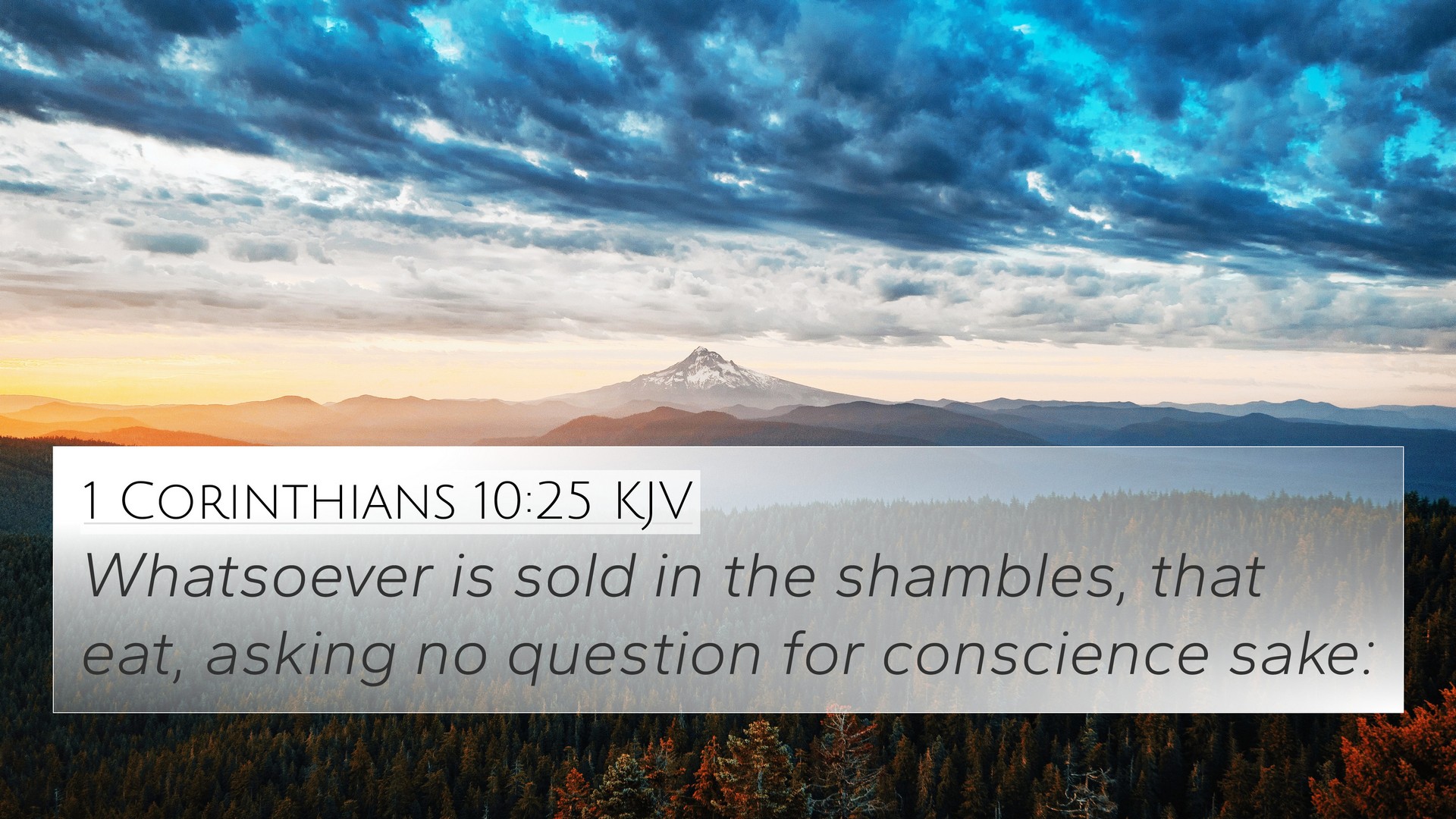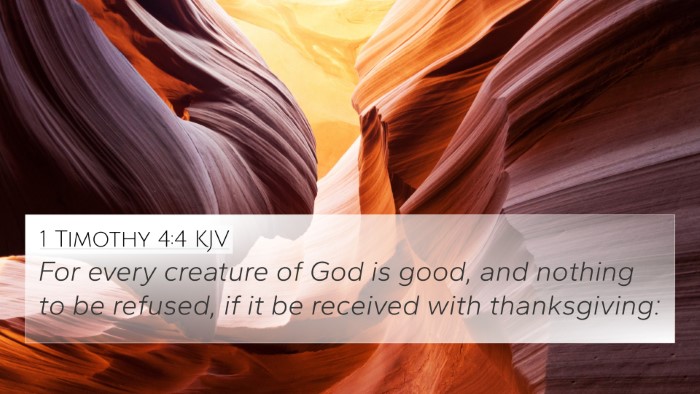Understanding 1 Corinthians 10:25
1 Corinthians 10:25 states, "Eat whatever is sold in the meat market, asking no questions for conscience' sake." This instruction, provided by the Apostle Paul, emphasizes a practical approach to engagement with the surrounding culture, particularly concerning food offered to idols.
Meaning and Interpretation
This verse highlights the freedom and responsibility Christians have regarding their dietary choices in a culturally diverse context. The Apostle Paul, throughout his letters, advocates for a careful yet unrestricted lifestyle concerning provisions that might have pagan connotations.
Key Insights from Commentaries
-
Matthew Henry:
Henry notes that Paul addresses the believers' liberty to eat meat without guilt, dismissing the need to inquire about its origin. This illustrates the faith that partakes in God's goodness, regardless of the meat's past associations.
-
Albert Barnes:
Barnes elaborates on the communal aspect of eating in the marketplace. He emphasizes that food, in itself, is neither good nor evil, and that believers should focus on living in a way that pleases God without undue concern for cultural taboos.
-
Adam Clarke:
Clarke clarifies that this verse reflects a broader principle of Christian liberty. He asserts that as long as one's choices do not lead others into sin, they are free to enjoy the provisions of the earth.
Cross-References and Related Verses
1 Corinthians 10:25 resonates with several other biblical passages that echo similar themes of dietary freedom and cultural engagement:
- Romans 14:14: Indicates that nothing is unclean in itself, aligning with the idea of food being neutral.
- Colossians 2:16: Warns against letting anyone judge believers in regards to food and drink.
- 1 Timothy 4:4-5: Confirms that everything created by God is good and nothing is to be rejected.
- Acts 10:15: Peter's vision that declares all animals clean serves as a backdrop for discussions on eating practices.
- 1 Corinthians 8:8: Clarifies that food will not commend us to God, reinforcing the focus on faith over dietary laws.
- Matthew 15:11: Teaches that it is not what goes into the mouth that defiles a person, but what comes out of it.
- 2 Corinthians 5:17: Emphasizes being a new creation, which extends to all areas of life, including dietary choices.
Thematic Connections and Biblical Dialogue
The analysis of 1 Corinthians 10:25 invites a thematic exploration of freedom and conscience in the Christian life. The connections between the Apostle Paul's teachings and those found in the Gospels and the Old Testament showcase an inter-Biblical dialogue regarding the understanding of food and worship.
Connecting Themes:
The key themes that emerge from 1 Corinthians 10:25 include:
- Liberty in Christ: The idea that believers are not bound by ritualistic laws.
- Conscience: The need to be sensitive to the beliefs of others when making personal choices.
- Simplicity: Encouragement to avoid overthinking choices that are fundamentally neutral.
Tools for Bible Cross-Referencing
For those seeking a deeper understanding of these themes, several tools can assist in Bible cross-referencing:
- Bible concordance: A helpful index for finding verses related to specific words or themes.
- Bible cross-reference guide: Offers side-by-side comparisons of similar verses.
- Cross-reference Bible study: Methods to analyze themes across different books of the Bible.
Conclusion
1 Corinthians 10:25 calls believers to exercise their freedom in Christ wisely. By understanding this verse alongside its cross-references and related themes, Christians can better navigate the complexities of cultural engagement and personal conscience, reflecting the heart of the Christian faith.
Further Study:
If you're interested in exploring the connections and similarities between this verse and others, consider utilizing a structured approach through:
- Bible reference resources for deeper insight.
- Identifying connections between Old and New Testament texts.
- Detailed cross-referencing for sermon preparation.









